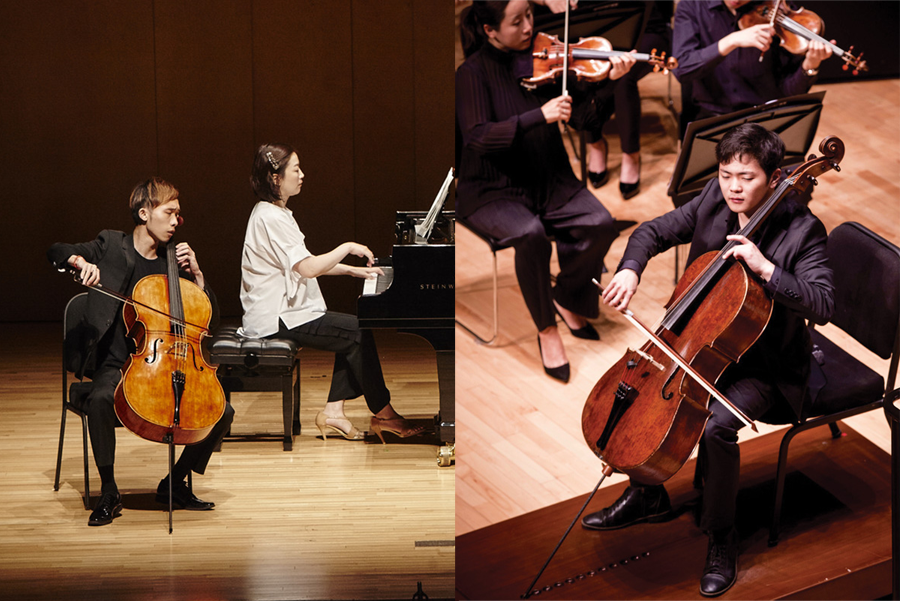Two Bienen students selected to compete in renowned Queen Elisabeth competition
Source: Brannon Cho; Source: Sihao He
Sihao He (left) and Brannon Cho perform in the PyeongChang Music Festival in Korea. He and Cho both qualified to compete in the inaugural Queen Elisabeth cello competition in Brussels, Belgium.
April 12, 2017
Two Bienen students qualified to compete in the first-ever Queen Elisabeth cello competition in Brussels, Belgium in May.
More than 200 cellists worldwide submitted audition tapes to be considered for the competition, according to the competition’s website. First-year graduate student Sihao He and Bienen senior Brannon Cho, both students of Bienen Prof. Hans Jørgen Jensen, were among the 70 candidates selected to move on to compete in the first round of the competition in May.
Although the Queen Elisabeth Competition has been around for more than 75 years, this is the first year the competition will feature a cello category. The competition aims to launch top-tier young musicians into international careers, according to its website. It is considered one of the leading international competitions for violin and piano, but has also expanded to include competitions in composition, voice and now cello.
Cho started playing cello when he was seven, and has been playing for 15 years. Cho said playing cello allows him to bring music to life on stage.
“I just love being an artist and being able to create experiences for audiences,” Cho said.
“The great thing about performing classical music is we’re able to study a work from 300 years ago and then bring it to life today in the concert hall and it’ll be just as moving.”
One of the main reasons He loves playing the cello is because of the tone. He originally began playing violin when he was nine but switched to cello after a judge suggested it.
Cho said the Queen Elisabeth Competition is like “the Olympics or Wimbledon for violinists,” and the new cello category is an exciting opportunity. Cho took extra courses Fall and Winter Quarters to finish his classwork early and have additional time to prepare for the competition. Since Winter Quarter exam week, Cho has been practicing at least eight hours a day, he said.
The competition consists of three different rounds, with each one getting increasingly more intense. For the final round, 12 selected cellists will have a week in seclusion to learn a piece specifically composed for the competition. The finalists will then perform that piece and a concerto of their choice, accompanied by the Brussels Philharmonic.
Preparing for the competition is both exciting and stressful for He, who said he is grateful for the opportunity to play in the competition.
“For me, (this competition) gives me an extra opportunity to perform for other people so I wouldn’t think about it as competing with other people,” He said. “I’m just going to present my best to the audience, to the jury … it’s a quite interesting experience for me.”
In preparation for their trip to Europe, Cho and He will both perform in recitals on April 25 and April 26, respectively. The recitals will be held on campus and will be open to the public. Cho will perform three concertos with an orchestra, and He will perform repertoire for all three rounds of the upcoming competition, Jensen said.
To reach their fullest potential in the competition, Cho and He must push themselves to their limits, while also pacing themselves, Jensen said.
“When you prepare for a big competition, you have to push the level of your ability to the highest level,” he said. “Each time you do that, you grow from it. If you have success then you have your career to get other opportunities, but for me it’s always about how much … you grow.”
Email: [email protected]
Twitter: @madeleinemelody


